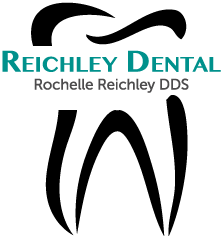 General & Preventive Dentistry
General & Preventive Dentistry
Founded in 1975, Reichley Dental Group provides a comprehensive range of general and preventive dentistry services in Beavercreek, OH. From our beginning, our dentists and staff have been committed to providing patients in every stage of life with the care and attention they deserve.
Our practice is designed to be warm and inviting. We truly take the time to get to know you, your needs, and goals for your smile. Our goal is to help every patient feel as if they are part of our family. Together with you, we will develop a customized treatment plan which helps you achieve and maintain your best dental health and smiles.
Providing Family-Friendly Care & Services for 40+ Years
Routine Cleanings
It is recommended you visit your dentist for a routine cleaning twice a year to help maintain optimal dental health. These cleanings are important for spotting signs of gum disease, decay, or oral cancer. During the cleaning, our hygienist will remove any plaque, tartar, and food buildup on your teeth. In addition, they will inspect your mouth for abnormalities. We will offer you advice on how to improve your at-home oral health habits so you can maintain your health and prevent issues from arising.Children’s Dentistry
Younger patients have different dental health needs than adults because they are still growing. Our team focus on helping children and adolescents feel safe and comfortable in our care. We make it a priority to help our younger patients feel at ease before, during, and after their treatments. Helping children develop positive associations with the dentist is a key to having good dental habits for life. We are a very family-oriented practice and look forward to treating every member of your family!Extractions
We will work with you to determine if a tooth extraction is the best option to return you to optimal health. If you have advanced periodontal disease, a tooth that is severely decayed, or is irreparable, you may need the tooth extracted. If this is the right treatment option for you, we will discuss the appropriate tooth replacement options to help preserve the aesthetics of your smile and prevent problems with surrounding teeth.Gum Disease Treatments
Regular dental checkups are important for monitoring and identifying any signs of gum (periodontal) disease. You may feel healthy and not be exhibiting any symptoms, but you may still have gum disease. It can progress without you even knowing. If it goes untreated, it can destroy the support bones in the jaw and mouth. We maintain the highest quality of care to ensure you preserve your oral health. It is our goal to help you prevent gum disease from even developing.X-Rays
X-rays allow our team to detect decay, cysts, tumors, impacted teeth, and teeth that have yet to emerge. This makes x-rays an important diagnostic tool for identifying oral health and dental issues. In addition, this procedure is useful for identifying sources of pain which are not visible during a visual examination.Crowns
A dental crown may be necessary if you have a tooth which cannot be fixed with bonding material or is in an advanced stage of tooth decay. This restoration option helps to restore aesthetics, strength, and function to the affected tooth. The area of your mouth being restored determines which material will be used for your crown.Bridges
A dental bridge is used for patients who are missing one or more teeth due to injuries, gum disease, or injuries. The bridge can restore your chewing and speaking ability, as well as facial shape. It is bonded onto surrounding teeth for support. A dental bridge is permanently fixed, so it is important to maintain good oral health.Fillings
A filling is used to restore strength and protect it from further damage after a cavity is removed. The filling material is used to fill the empty space created after removing the decayed area of a tooth. This prevents bacteria, tartar, or plaque from entering the space. There are several options for fillings, including composite, tooth-colored resin. Composite fillings are custom-matched to the natural color of your teeth.Frequently Asked Questions
When is comes to selecting a toothbrush, the brand is not as important as the type of bristle and size of the head. We recommend a small head with soft bristles. Medium and hard brushes tend to cause irritation and can contribute to gum recession. A small head allows you to get around each tooth more completely and is less likely to injure your gums. You do not need to “scrub” your teeth as long are your are brushing at least twice a day and visiting your dentist at least twice a year for cleanings.
In general, no. We do recommend using a toothpaste which contain fluoride, as this decreases your chance of developing tooth decay. As long as your toothpaste contains fluoride, you can use a toothpaste which tastes good to you.
Flossing once a day is important because it helps keep your gums healthy and prevents periodontal disease. In addition, it can help prevent cavities from forming between the teeth — where your toothbrush cannot reach.
A crown and a cap are the same thing. Both are restorations to repair tooth affected by trauma, fractured tooth structure, or decay. Crowns can be made from a variety of materials including porcelain, porcelain fused to metal alloy, all metal alloy, or gold.
Both partial dentures and bridges replace missing teeth. A bridge is permanently attached to adjacent teeth or implants. A partial denture is easily removable and is attached by clasps to the teeth. In most cases, patients are more satisfied with bridges over partial dentures.
While amalgam or silver fillings are safe to use, today many patients choose “white” or tooth-colored composite fillings. We try to accommodate patients requesting composite restorations. However, we have seen better long term results using amalgam fillings on back chewing surfaces. While composite restorations do great on small posterior surfaces and anterior surfaces, when subjected to longer pressure from chewing, they don’t hold up. We will work with you to determine which filling option fits your immediate and long-term dental needs.
While crowns are used to strengthen teeth after a root canal, not every tooth needing a crown needs to have a root canal.

For more information about our general dentistry treatments, for additional questions, or to schedule an appointment,
please contact us today at 937-426-5560
